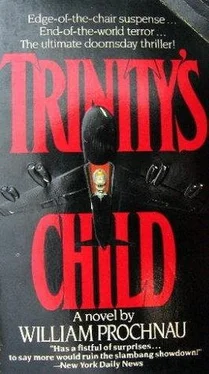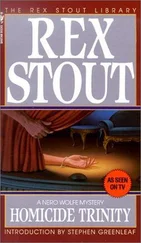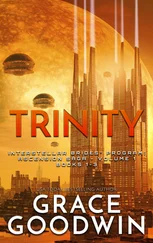Harpoon ignored the flight of the bur, taking in the strange scene around him. It was not reassuring to a man accustomed to military order. The takeoff delays were less reassuring. The plane bumped violently, then stopped, the engine whine falling off to a low rumble. He reached toward the white telephone console, so many of its button lights connected to dead ends now. The engine whine accelerated again and the plane edged forward. He thought better of a call to the cockpit—the pilot had enough troubles—and setded back into his seat, one of four clustered near the phone in the command plane’s presidential quarters.
On the admiral’s right sat the backwoods judge who had rescued the successor from obscurity with a Bible and a quick oath and whom the successor had insisted on rescuing from the bayous. On the successor’s left sat the director of the Fish and Wildlife Service, an old friend. He looked a mess, his face flushed, his pudgy fingers tapping their grime nervously onto an armrest, his belly heaving in irregular swells over a barely visible silver-and-turquoise Indian belt buckle.
Behind the Louisiana judge and the admiral stood two Secret Service agents, the survivors of eight sent out from the Baton Rouge Treasury office to collect the man. Their business suits, the discounted flannels favored by young stockbrokers and government agents, were disheveled and torn. Mud caked their trousers, and splotches of dry dark red spattered their jackets and shirts. They clearly had been quite efficient. They still held their Uzi submachine guns at what passed for port arms. The guns made Harpoon still more edgy. The plane bumped again.
“How bad’s bad, admiral?”
The man’s words seemed to carom out of nowhere, breaking an awkward conversational lull and jolting Harpoon out of his temporary preoccupation. He struggled to put his thoughts together.
“Come on, man,” the successor said, the drawl back. “Come on.”
The plane cut left, then right. The pilot was zigzagging around the aprons like a drunken driver. Harpoon wanted to wait now, give up a few precious minutes to get the plane in the air and the man downstairs where he could be led with detail rather than misled with the awful, abbreviated facts.
“You still there, admiral? I do think we got a war goin’ on.”
“Sorry, sir,” Harpoon said slowly. “You are in acute danger. I want to get airborne.”
“Been in acute danger for four hours, admiral. It’s mean outside. People are like animals.”
“I know, sir.”
“Well?”
“Sir?”
“How bad’s bad, admiral?”
“Sir, it’s extremely complex and technical. You need the fullest briefing possible.”
“Psshaw!” The successor pulled angrily upright in his seat. “Complex. Technical. Full briefin’. Doggone you, admiral, you sound like every cotton-pickin’ bureaucrat in Washington. We got no time for that kind of talk.”
Harpoon winced. It took them months to break in a new President. How did he do it now in minutes? “No, sir,” he said cautiously, “we have very little time.”
“Then get on with it, man. Just give it to me. One. Two. Three. I’m not stupid. How many warheads did the commies hit us with?”
“About two thousand, sir.”
“Two thousand.”
Harpoon searched the man’s face for a reaction. “Yes, sir. Probably twenty-five hundred megatons.” React, damn you. “One megaton is about fifty times the explosive power of the Hiroshima bomb.”
The successor stared at him coldly. “Don’t patronize me, admiral. I know damn well what a megaton is. What did we hit them with?”
“About the same, sir. Somewhat less megatonnage.”
“Our stuff’s better. Always was.” The successor prided himself on the show of knowledge.
“More accurate, sir. It was a relatively even exchange.” Harpoon shifted uncomfortably. The engines ebbed again. Harpoon started to reach for the intercom button.
“How many dead?” the successor asked.
Harpoon drew his hand away from the phone. “Millions.”
“Of Americans.”
“Yes.”
“And Russians.”
“Yes.”
“A relatively even exchange.” The man harrumphed and went silent, his gaze drifting around his new quarters. The drift stopped on a far blue wall where the portable Seal of the President of the United States stared down on its newest possessor. A clutch of olive branches sprouted from one set of talons on the emblem’s proud eagle. An array of arrows jutted from the other.
The man felt a great debt to that eagle and the country it represented. The only son of a dirt-poor Oklahoma farmer, he had gone into the oil fields when he was fifteen, sunk his own well when he was twenty-two, and brought in his first when he was twenty-five. A year later he had his first million dollars and found the Lord about the same time, seeing each as a reflection of the other and both as a reflection of his country’s gifts. The Oklahoma City Times called the young oilman an American classic—a man who talked hard, worked hard, prayed hard, and had all the rewards to prove it.
In his late thirties, during the continuing OPEC crisis, he merged his successful independent oil company into one of the majors, accepting a fortune and a vice-presidency. It became the unhappiest time of his life. He didn’t trust multinational oil, didn’t trust anybody who placed as much value on a Persian sand dune as he did on good American soil. He edged into politics, mostly fund-raising. He played the game hard and, some said, mean—skewering candidates who failed to see Americanism his way, pouring cash into the campaigns of those who saw the dream as he saw it.
The last recipient of his cash had been elected President. And the invitation to join the Cabinet was like a prayer answered, particularly when the President-elect told him the first order of business was energy independence to help put the squeeze on the Russians. His mind drifted back to the meeting at which the President-elect had offered him the job. The new President had talked grandly and seriously of the great social responsibility that went with the appointment, emphasizing the chance he would get to move a nation on issues that would carry his imprint far beyond his lifetime. It was a chance to give back to his country part of what his country had given him. He had accepted without hesitation, and the President had thanked him warmly.
“How’d the President get it?” the successor asked quietly, his eyes still fixed on the Seal.
“In Nighthawk One, sir,” Harpoon replied. “His chopper.”
But it soon became clear the President had wanted him for other duties, too. He had become the administration’s sonuvabitch, the man who did the balls-slicing while the President smiled, a political lightning rod who drew the bolts meant for the man in the White House. Even those well-schooled in the alley-fighting of Washington politics were surprised at how well he performed those chores. Behind the leather chair in his office on the sixth floor of the Department of the Interior hung a sign that read: “Don’t Get Mad, Get Even.”
“The chopper started for Andrews. The crew saw they couldn’t make it and tried to run.”
The successor pulled his eyes back into sharp focus on the Presidential Seal, his Seal now. Above the talons clutching both arrows and olive branches, the single rockhard eye of the eagle glinted at him in challenge. An eye for an eye. A relatively even exchange.
“We assume the chopper was crushed in the blast wave.”
The successor’s eyes swung abruptly away from the eagle, taking the glint with them. “Assume?”
Harpoon stared back at the man. He wanted to get him off this subject. He wanted to get the plane off the ground. “Sir,” he said evenly, “you don’t go looking for bodies in this kind of war. You don’t find them.” Harpoon paused very briefly. “We haven’t heard a word from any political or civil authority since we got the message to come for you.” He paused again, adding, “Four hours ago.”
Читать дальше












